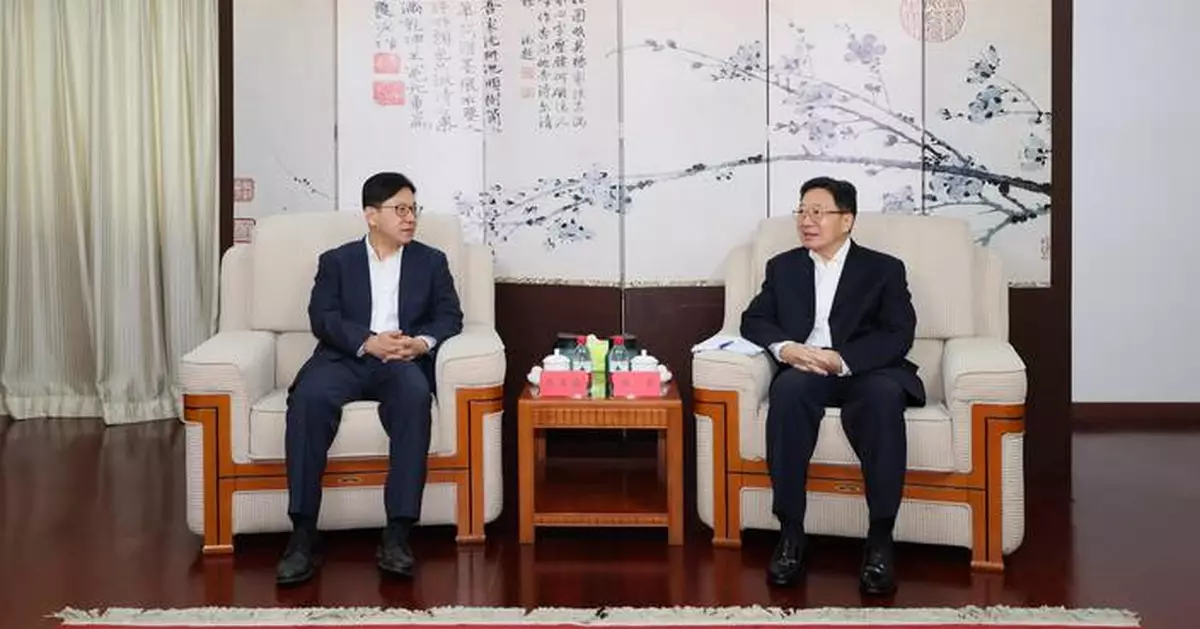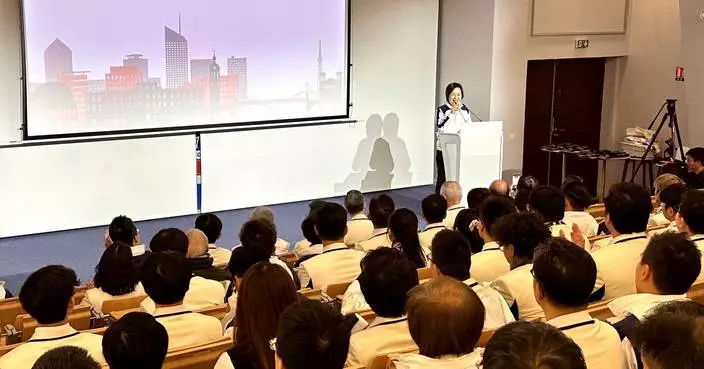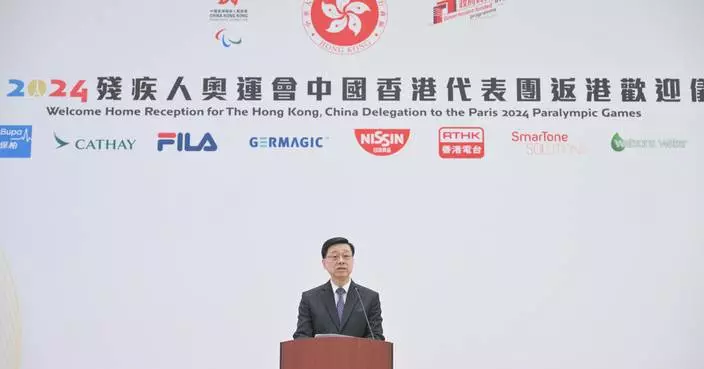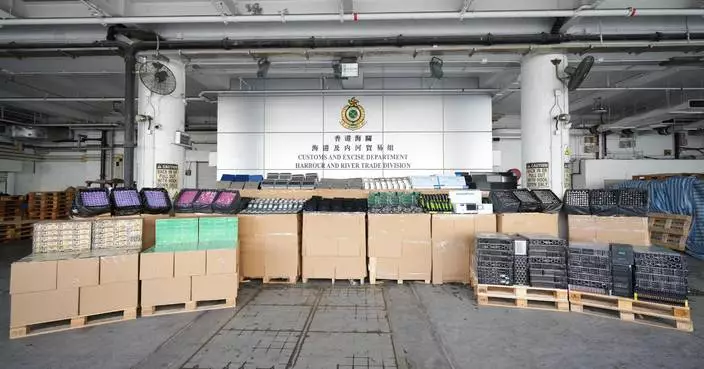SLW calls on HKMAO of State Council in Beijing
Accompanied by the Permanent Secretary for Labour and Welfare, Ms Alice Lau, and the Director of Social Welfare, Miss Charmaine Lee, the Secretary for Labour and Welfare, Mr Chris Sun, called on the Executive Deputy Director of the Hong Kong and Macao Affairs Office (HKMAO) of the State Council, Mr Zhou Ji, in Beijing this morning (September 6).
At the meeting, Mr Sun reported to Mr Zhou on the latest work progress of the Hong Kong Special Administrative Region (HKSAR) Government in the areas of social welfare, labour policies and talent attraction over the past year, including the implementation progress of targeted poverty alleviation projects, new initiatives on elderly and rehabilitation services,updates on measures related to the protection of employee rights for imported labour and the enhanced talent admission mechanism, as well as issues such as promoting and deepening co-operation between Hong Kong and cities of the Guangdong-Hong Kong-Macao Greater Bay Area. Mr Sun also expressed gratitude to the Central Government and the HKMAO for their care and support.
Mr Sun said that the HKSAR Government will continue to fully, faithfully and resolutely live up to the "one country, two systems" principle, in order to govern Hong Kong in accordance with the law and improve people's livelihood, thereby striving to maintain the long-term prosperity and stability of Hong Kong. To implement theResolution of the Central Committee of the Communist Party of China (CPC Central Committee) on Further Deepening Reform Comprehensively to Advance Chinese Modernization adopted by theThird Plenary Session of the 20th CPC Central Committeein supporting Hong Kong to build itself into an international hub for high-calibre talent, the HKSAR Government will continue to spare no effort in attracting talent by leveraging Hong Kong's institutional strength under "one country, two systems" to facilitate its active role in the opening up of the country.
Mr Sun and the delegation returned to Hong Kong tonight.
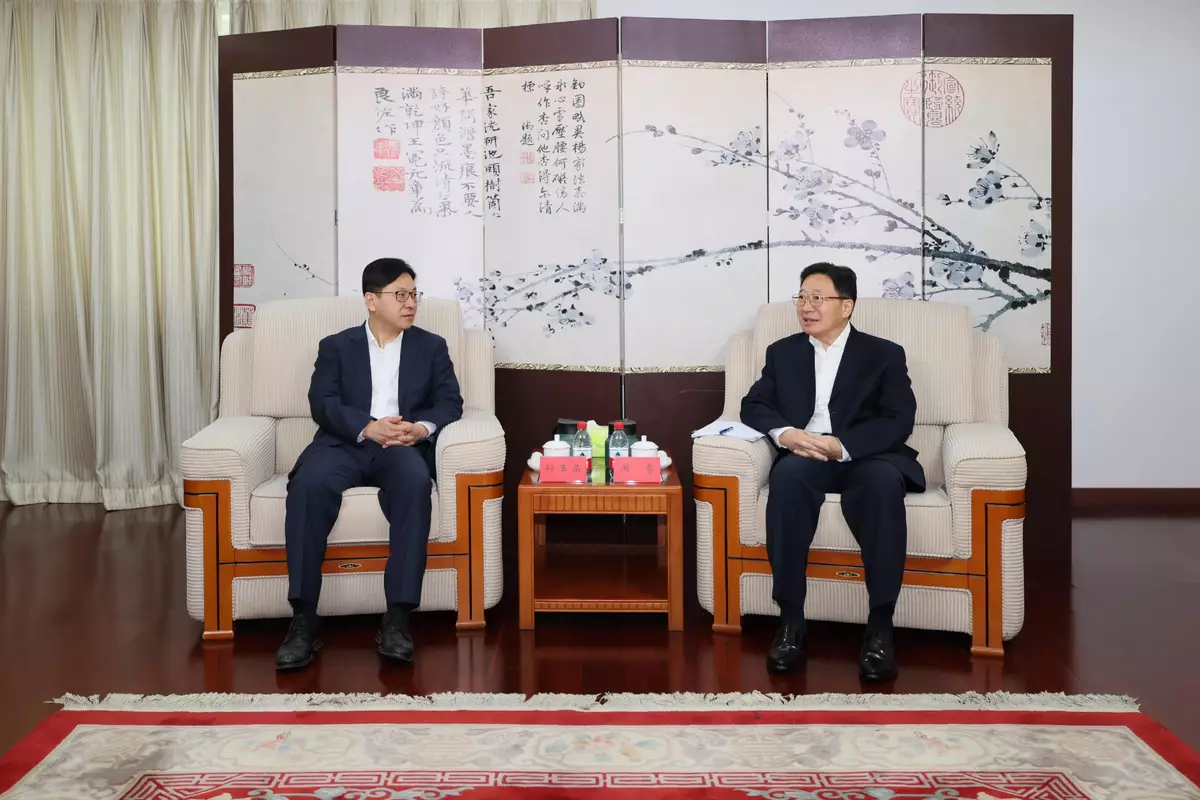
SLW calls on HKMAO of State Council in Beijing Source: HKSAR Government Press Releases
Update on cases of Legionnaires' disease
The Centre for Health Protection (CHP) of the Department of Health today (September 16) reported the latest number of cases of Legionnaires' disease (LD), and stressed the importance of using and maintaining properly designed man-made water systems, adding that susceptible groups should strictly observe relevant precautions.
From September 8 to 14, the CHP recorded three community-acquired LD cases:
A female patient, aged 60 with underlying illnesses, who lives in Tai Po District;
A male patient, aged 66 with underlying illnesses, who lives in Shatin District; and
A male patient, aged 68 with good past health, who lives in Yau Tsim Mong District.
"Epidemiological investigations are ongoing to identify potential sources of infection, high-risk exposure and clusters, if any," a spokesman for the CHP said.
As of September 14, 81 LD cases had been recorded this year. In 2023 and 2022, there were 121 and 80 cases respectively.
"Men, people aged over 50, smokers, alcoholics and persons with weakened immunity are more susceptible to LD. Some situations may also increase the risk of infection, including poor maintenance of water systems; living in areas with old water systems, cooling towers or fountains; using electric water heaters, whirlpools and spas or hot water spring spas; and recent stays in hotels or vessels," the spokesman said.
Legionellae are found in various environmental settings and grow well in warm water (20 to 45 degrees Celsius). They can be found in aqueous environments such as water tanks, hot and cold water systems, cooling towers, whirlpools and spas, water fountains and home apparatus that support breathing. People may become infected when they breathe in contaminated droplets (aerosols) and mist generated by artificial water systems, or when handling garden soil, compost and potting mixes.
Immunocompromised persons should:
Use sterile or boiled water for drinking, tooth brushing and mouth rinsing;
Avoid using humidifiers, or other mist- or aerosol-generating devices; and
If using humidifiers, or other mist- or aerosol-generating devices, fill the water tank with only sterile or cooled freshly boiled water, and not water directly from the tap. Also, clean and maintain humidifiers/devices regularly according to manufacturers' instructions. Never leave stagnant water in a humidifier/device. Empty the water tank, wipe all surfaces dry, and change the water daily.
The public should observe the health advice below:
Observe personal hygiene;
Do not smoke and avoid alcohol consumption;
Strainers in water taps and shower heads should be inspected, cleaned, descaled and disinfected regularly or at a frequency recommended by the manufacturer;
If a fresh-water plumbing system is properly maintained, it is not necessary to install domestic water filters. Use of water filters is not encouraged as clogging occurs easily, which can promote growth of micro-organisms. In case water filters are used, the pore size should be 0.2 micrometres (µm) and the filter needs to be changed periodically according to the manufacturer's recommendations;
Drain and clean water tanks of buildings at least quarterly;
Drain or purge for at least one minute infrequently used water outlets (e.g. water taps, shower heads and hot water outlets) and stagnant points of the pipework weekly or before use;
Seek and follow doctors' professional advice regarding the use and maintenance of home respiratory devices and use only sterile water (not distilled or tap water) to clean and fill the reservoir. Clean and maintain the device regularly according to the manufacturer's instructions. After cleaning/disinfection, rinse the device with sterile water, cooled freshly boiled water or water filtered with 0.2 µm filters. Never leave stagnant water in the device. Empty the water tank, keep all surfaces dry, and change the water daily; and
When handling garden soil, compost and potting mixes:
Wear gloves and a face mask;
Water gardens and compost gently using low pressure;
Open composted potting mixes slowly and make sure the opening is directed away from the face;
Wet the soil to reduce dust when potting plants; and
Avoid working in poorly ventilated places such as enclosed greenhouses.
The public may visit the CHP'sLD page, theCode of Practice for Prevention of LDand theHousekeeping Guidelines for Cold and Hot Water Systems for Building Managementof the Prevention of LD Committee, and the CHP'srisk-based strategyfor prevention and control of LD.

Source: AI-generated images



